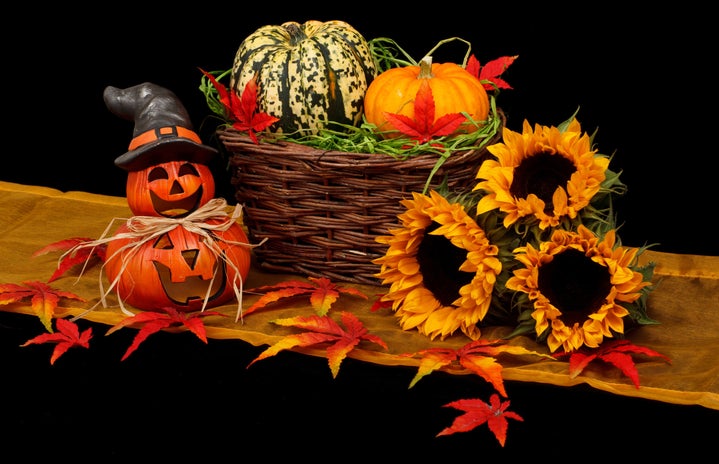For eleven months of the year, I avoid anything even slightly horror-related. As irrational as it is, watching horror movies makes it difficult to sleep at night, and passing by cemeteries incurs bouts existential dread. But as soon as October hits, I gobble up ghost stories and horror movies and anything associated with Halloween.
I don’t know why I seek out a pounding heart, sweaty palms, and the increased sensation that there’s someone—or something—lurking behind me. Despite avoiding anything potentially terrifying for the rest of the year, there’s something fun about being scared during the month of Halloween. Many people seem to agree with me, judging from the popularity of horror movies, haunted houses and other Halloween rituals. But why do we like being scared, despite fear being an emotion we usually try to avoid?
An allegedly real photograph of the Brown Lady of Raynham Hall, captured by Captain Hubert C. Provand for Country Life magazine, 1936.
The Biology Behind Our Love of Fear
When we’re exposed to something frightening, chemicals are released that cause an increased heart rate, quickened breathing, and stimulated muscles. This is known as a fight-or-flight response, and it’s critical to the survival of the human race. The flight-or-fight response equips humans with the instinct and the heightened strength to either run away from or fight a potentially life-threatening predicament. It’s easy to see how the flight-or-fight response has assisted with human survival; it’s what made our ancestors run away from predatory grizzly bears, and it’s what quickens our pace when walking past unlit, abandoned alleys at night.
However, when there’s no risk of being maimed by a deadly animal or running into unsavoury characters, the rush of a flight-or-flight response can be “enjoyable.”
In an interview with Live Science, environmental psychologist Frank McAndrew says that embracing fear makes sense from an evolutionary perspective. Fear can lead people to seek out new opportunities, sources of food and shelter, and strong friends and allies.
Dopamine is one of the hormones released during fight-or-flight responses, and it produces pleasure. Dopamine also motivates us to “seek positive rewards.” A study found that the more dopamine one produces, the more likely they are to enjoy “thrilling situations.”
Why Do We Watch Horror Movies?
A still from Nosferatu, the famous silent film about a vampire. Photo from FilmAffinity.com
Rationally, we shouldn’t enjoy horror movies; they depict the very things we avoid in our daily lives. This paradox has puzzled psychologists and philosophers from Aristotle to Sigmund Freud to modern researchers. A 2004 paper by Dr. Glenn Walters, referenced by Psychology Today, explains why we watch horror films through three characteristics:
- Tension (fear, gore, and other such examples)
- Relevance (for example, our fear of dying)
- Unrealism (we know the film is fiction)
In a 1994 study, college students were shown real-life videos of horrific images of animal abuse, and a graphic surgical procedure. Understandably, the viewers were disgusted, and many couldn’t finish watching the videos. However, the study noted most of these students had no problem watching fictional horror movies.
In response to the 1994 study, one of the researchers proposed that the “fictional nature” of the horror movies gave viewers “a sense of control” and puts a distance between them and the horrific acts in the film.
The Philosophy of Horror
Many people have philosophized about why we like horror.
Horror writer Stephen King says that we enjoy horror movies because “we’re all mentally ill,” and we like seeing people suffer on screen because we are all inherently cruel.
Famous Greek philosopher Aristotle says people watched scary plays in order to release their own violent emotions in a phenomenon he calls “catharsis.”
Philosopher Noël Carroll believes we enjoy horror movies because of curiosity. Horror isn’t the main emotion we’re seeking—it’s fascination.
In short, no one really know why we like horror.
As inexplicable as it is, I’m still going to grab a bowl of popcorn and willingly scare myself to death this Halloween.


